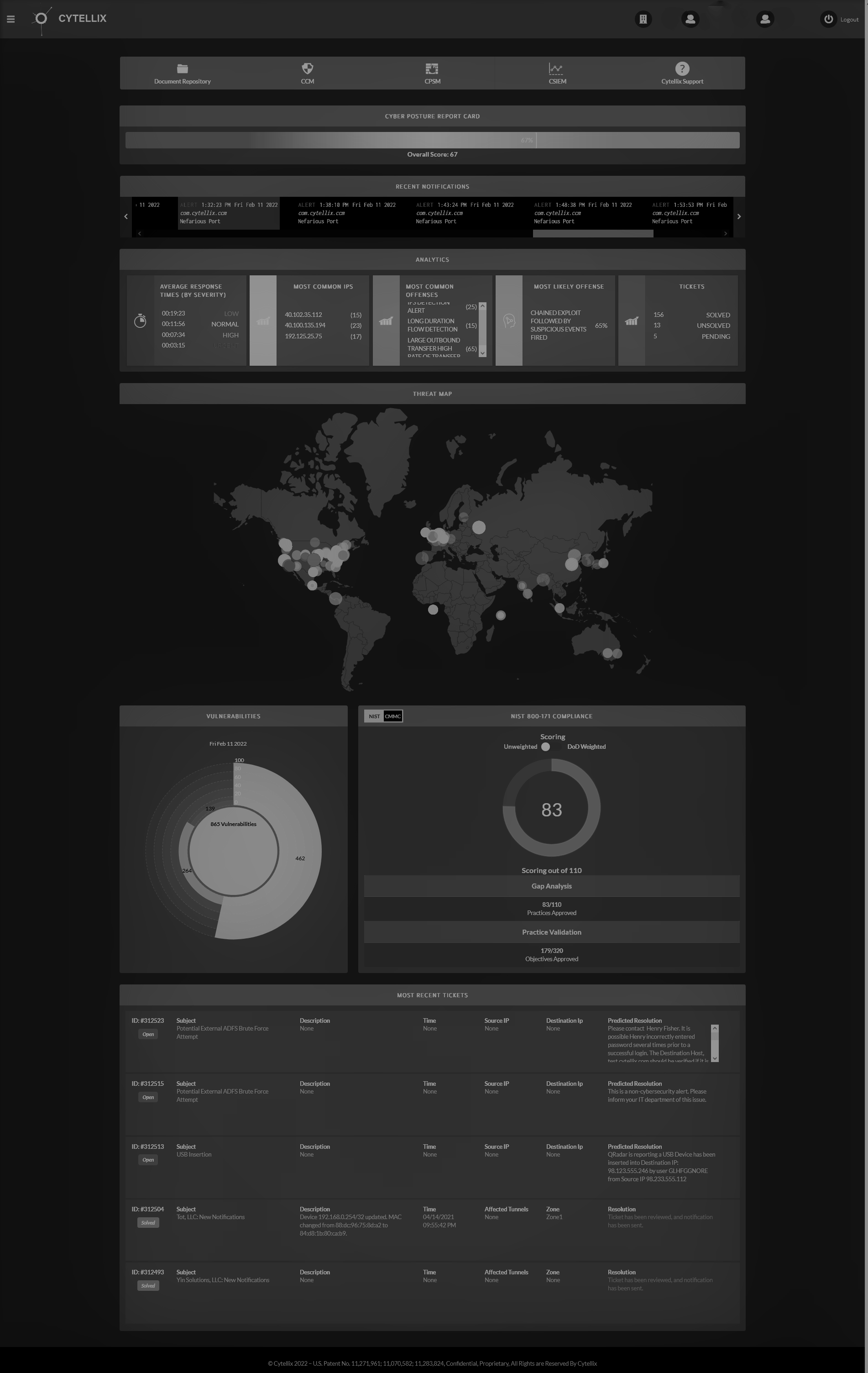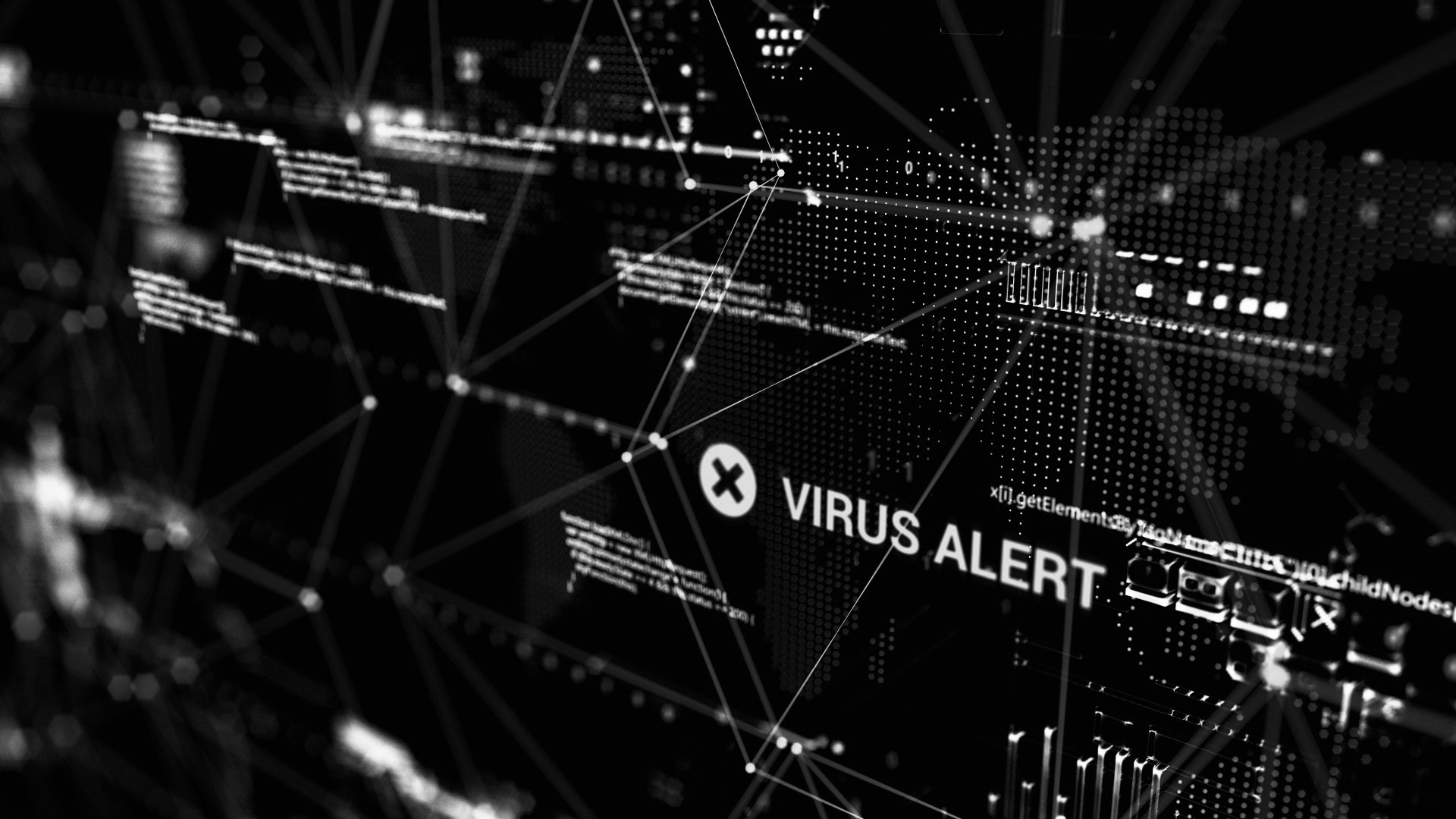Cybersecurity in The Manufacturing Industry
Our whole world is relying more and more heavily on the internet and other digital platforms. While this has certainly made life easier and more convenient, it's also created a whole new area of crime: cybercrime. Specific industries are more at risk than others simply due to the nature of the work. As manufacturing becomes more data-driven and proprietary information is leveraged, it's also becoming a larger target for cybercriminals. For an industry that wasn't prepared for the influx of attacks, manufacturing had to adapt quickly and has become a significant risk to US competitiveness. Luckily, there are plenty of cybersecurity options that can save the day.
Our whole world is relying more and more heavily on the internet and other digital platforms. While this has certainly made life easier and more convenient, it's also created a whole new area of crime: cybercrime. Specific industries are more at risk than others simply due to the nature of the work. As manufacturing becomes more data-driven and proprietary information is leveraged, it's also becoming a larger target for cybercriminals. For an industry that wasn't prepared for the influx of attacks, manufacturing had to adapt quickly and has become a significant risk to US competitiveness. Luckily, there are plenty of cybersecurity options that can save the day.
Why is Manufacturing Under Attack?
As we mentioned, manufacturing is relying more heavily on data than it ever has before. According to the United States Department of Homeland Security, based on the number of reported cyber-attacks, the manufacturing industry is the second most frequently targeted industry in the United States. You may be shocked to hear this, but it does make quite a bit of sense. Since the industry is relatively new to data and digital reliance, they have less cyber professionals thus their processes are weaker. Hackers and cybercriminals will look for any kind of weakness to make their lives easier. Until the industry makes cyber part of their business and technology process, they could be easy targets. It's important to note that smaller manufacturers are more at risk than larger ones. Smaller firms have lower budgets and are typically easier to attack and can be used as a stepping stone to larger companies who they supply. Small manufacturers tend to work with or be affiliated with larger manufacturers, so cybercriminals see an opportunity to steal data from both parties. Smaller companies often feel that they're safe from hackers because they "aren't worth it," when in reality, they're usually the first targets. In any case, the information used by the manufacturing organizations is typically proprietary in nature, and that information in the hands of its competitors or adversaries can impact the future revenues and cause irreparable damage.
Information that is considered confidential comes in many forms. Specially in manufacturing, there are more than 365k companies that support the USA Supply Chain for defense of the nation. The information these companies hold is called Controlled Unclassified Information (CUI). In addition to CUI is the process and Intellectual Property (IP) developed by the Supply Chain. Collectively, this information is the primary target of the attackers. Manufacturers must protect both CUI and IP.
How Can You Protect Your Business?
So, how can you protect your manufacturing business from cybercrime? The best course of action is to hire a team of experts in cybersecurity (like Cytellix), to come and evaluate your current situation. We will take a look at your weaknesses and identify any existing threats. From there, we can look at what you use for security, protection, policies, procedures, data, cloud storage, the IoT, and more, and build an affordable and appropriate package with all the services specific to your organization. It's best to make changes now because most manufacturing companies are regulated for cybersecurity such as CMMC which will be mandatory for all 365k supply chain manufacturers by 2026. In addition, NIST 800-171 guidelines must be adhered to. If your company is in a state that has implemented data protection requirements such as CCPA in California, or you do business with European Union Citizens under the General Data Protection Regulation (GDPR) or you follow ISO (ISO 27001), then a cybersecurity framework based cyber program should be on your agenda. Cytellix will be able to get you in top shape for CMMC, NIST, GDPR, and ISO preparation for audit and certification when the time comes. It's far easier (and more cost-effective) to prepare now, rather than wait until the mandates have already been made. We offer a unique all-in-one platform that allows clients to understand their cyber weaknesses and monitor cyber-attacks in real-time with everything in one place. You can even integrate our Cytellix Cybersecurity Watch Portal with other tools you may already own to immediately implement solutions! Together, we can keep your manufacturing business safe from cybercriminals.
If you are in the manufacturing industry, the time is now to prepare for stricter data protection regulations. If you make it known right away that you don't make it easy for hackers to get into your systems, you protect yourself from future attacks. You can also use your superior cybersecurity to gain the trust of customers and increase your revenue. Cytellix has worked with hundreds of manufacturing brands in the past, and we can help you too! Call (949) 215-8889 to speak to our team and get started. Visit www.cytellix.com for more information.
Cytellix has expert capabilities in cybersecurity technology, risk management frameworks (RMF, NIST, CMMC, GDPR, FFIEC, ISO) and provides a complete visibility platform that supports: DoD customers, DIB Customers, DoD Supply Chain, and other highly regulated industries (Finance, Automotive, Utilities, State and Local Government). Our technology stack includes Automated Cyber Assessment, SIEM as Service, 24x7 SOC, Vulnerability Management, Real-time continuous cyber monitoring, Firewall Management, and threat hunting and threat correlation.
Want to learn more? Contact one of our talented team members
here today.
As we mentioned, manufacturing is relying more heavily on data than it ever has before. According to the United States Department of Homeland Security, based on the number of reported cyber-attacks, the manufacturing industry is the second most frequently targeted industry in the United States. You may be shocked to hear this, but it does make quite a bit of sense. Since the industry is relatively new to data and digital reliance, they have less cyber professionals thus their processes are weaker. Hackers and cybercriminals will look for any kind of weakness to make their lives easier. Until the industry makes cyber part of their business and technology process, they could be easy targets. It's important to note that smaller manufacturers are more at risk than larger ones. Smaller firms have lower budgets and are typically easier to attack and can be used as a stepping stone to larger companies who they supply. Small manufacturers tend to work with or be affiliated with larger manufacturers, so cybercriminals see an opportunity to steal data from both parties. Smaller companies often feel that they're safe from hackers because they "aren't worth it," when in reality, they're usually the first targets. In any case, the information used by the manufacturing organizations is typically proprietary in nature, and that information in the hands of its competitors or adversaries can impact the future revenues and cause irreparable damage.
Information that is considered confidential comes in many forms. Specially in manufacturing, there are more than 365k companies that support the USA Supply Chain for defense of the nation. The information these companies hold is called Controlled Unclassified Information (CUI). In addition to CUI is the process and Intellectual Property (IP) developed by the Supply Chain. Collectively, this information is the primary target of the attackers. Manufacturers must protect both CUI and IP.
How Can You Protect Your Business?
So, how can you protect your manufacturing business from cybercrime? The best course of action is to hire a team of experts in cybersecurity (like Cytellix), to come and evaluate your current situation. We will take a look at your weaknesses and identify any existing threats. From there, we can look at what you use for security, protection, policies, procedures, data, cloud storage, the IoT, and more, and build an affordable and appropriate package with all the services specific to your organization. It's best to make changes now because most manufacturing companies are regulated for cybersecurity such as CMMC which will be mandatory for all 365k supply chain manufacturers by 2026. In addition, NIST 800-171 guidelines must be adhered to. If your company is in a state that has implemented data protection requirements such as CCPA in California, or you do business with European Union Citizens under the General Data Protection Regulation (GDPR) or you follow ISO (ISO 27001), then a cybersecurity framework based cyber program should be on your agenda. Cytellix will be able to get you in top shape for CMMC, NIST, GDPR, and ISO preparation for audit and certification when the time comes. It's far easier (and more cost-effective) to prepare now, rather than wait until the mandates have already been made. We offer a unique all-in-one platform that allows clients to understand their cyber weaknesses and monitor cyber-attacks in real-time with everything in one place. You can even integrate our Cytellix Cybersecurity Watch Portal with other tools you may already own to immediately implement solutions! Together, we can keep your manufacturing business safe from cybercriminals.
If you are in the manufacturing industry, the time is now to prepare for stricter data protection regulations. If you make it known right away that you don't make it easy for hackers to get into your systems, you protect yourself from future attacks. You can also use your superior cybersecurity to gain the trust of customers and increase your revenue. Cytellix has worked with hundreds of manufacturing brands in the past, and we can help you too! Call (949) 215-8889 to speak to our team and get started. Visit www.cytellix.com for more information.
Cytellix has expert capabilities in cybersecurity technology, risk management frameworks (RMF, NIST, CMMC, GDPR, FFIEC, ISO) and provides a complete visibilityplatform that supports: DoD customers, DIB Customers, DoD Supply Chain, and other highly regulated industries (Finance, Automotive, Utilities, State and Local Government). Our technology stack includes Automated Cyber Assessment, SIEM as Service, 24x7 SOC, Vulnerability Management, Real-time continuous cyber monitoring, Firewall Management, and threat hunting and threat correlation.
Want to learn more? Contact one of our talented team members
here today.













